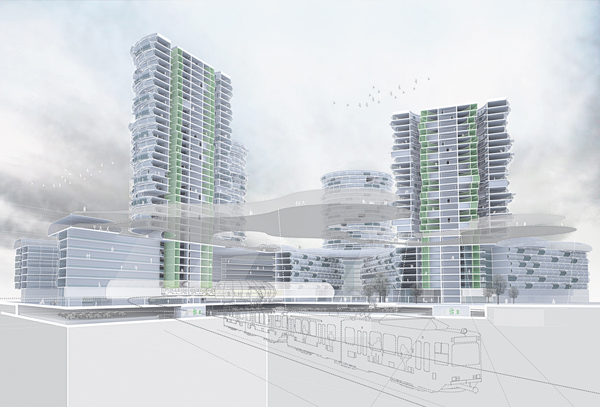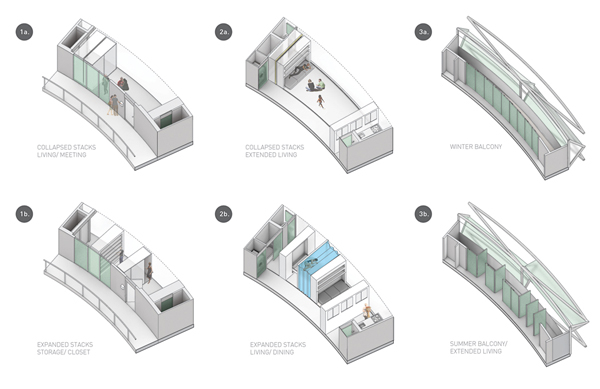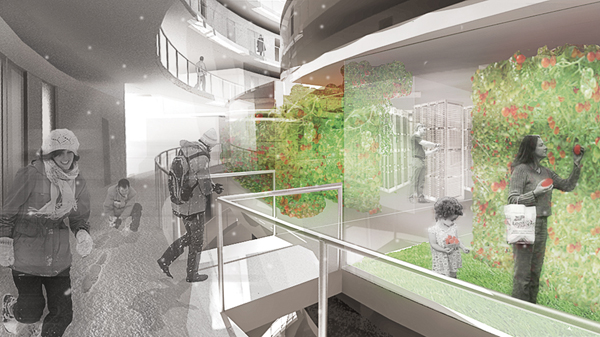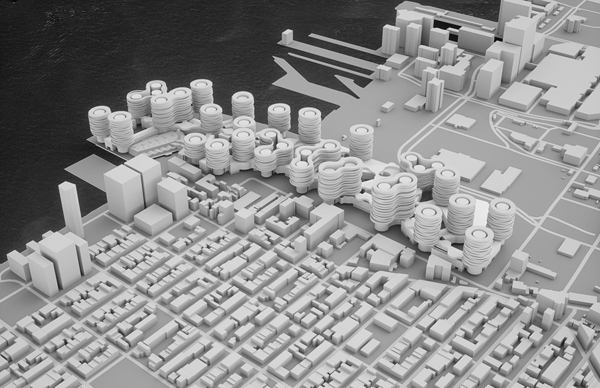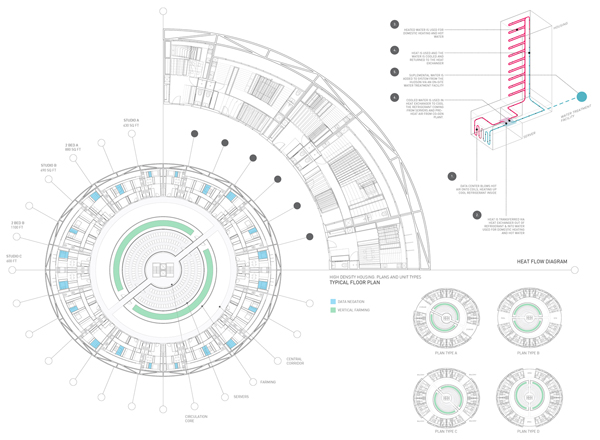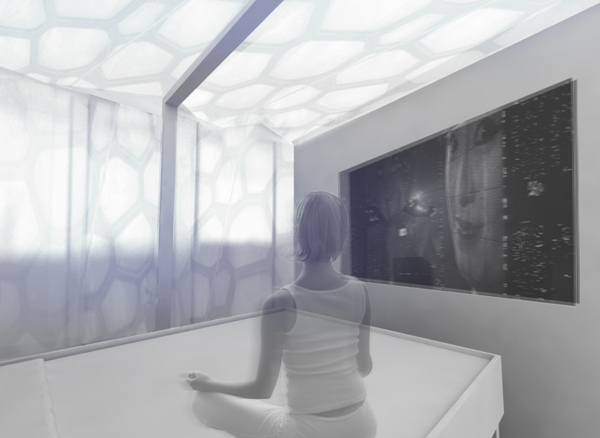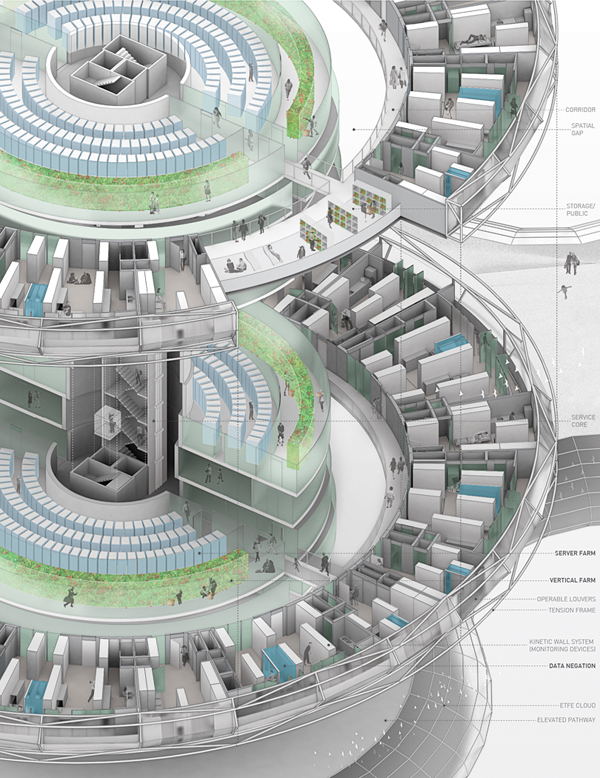
The 2011 d3: Housing Tomorrow competition called for the design of “transformative solutions that advance sustainable thought, building performance, and social interaction”. David Zhai and Alexis Burson’s winning selection for the New York category was an innovative project that speculated on the future of the network society through the hybridization of data and living.
The design strategy called for a series of server farms established within a network of high and low-density housing. The servers interface with surrounding domestic spaces allowing informational feedback to occur between the inhabitants and a kinetic architectural system that responds to the various spatial needs of its community.
Revenue generated from the data servers help to subsidize the cost of living while the substantial heat created from the processing of data is used in a heat-exchange process to support domestic heating and hot water. Heat from the servers also support a network of vertical farming which provides sustenance for the community. An integrated biometric monitoring system allows residents to better improve on their health and lifestyle while increasing the effectiveness of health and emergency response services.
By re-conceptualizing new modes of informational collection and distribution on an urban scale, with consideration for health, privacy, economy, and the environment, this project tests but also begins to define the emergence of the post-computing society and the creation of a new urbanism and a new model of community.
